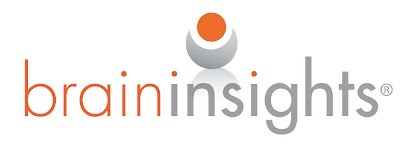During the preschool years 90% of brain growth occurs. It is critical that adults provide positive experiences and environments for the optimal development of children during these important years.
I am very pleased to share this post to participate with a wonderful group in a celebration of 20,000 individuals supporting the importance of the early years in a child's development. Deborah J. Stewart is dedicated to promoting excellence in early education through her Teach Preschool blog. She has just connected with 20,000 individuals who are dedicated to making a positive impact for young children!
This fun celebration is providing a full alphabet of blog posts on a variety of wonderful aspects of the early childhood years. You can see all that is provided here - ENJOY!
A child’s brain continues to develop long after birth. The term “brain development” refers to more than how smart a child is. It is the actual growth that takes place in the brain. The experiences a child has in the first few years creates the connections between brain cells and develops the foundation for relationships and learning throughout life.
Nutrition, sleep, regular routines, physical activity, play, and repeated positive experiences with caring adults, strengthens the connections to create the growth of a brain. This makes the brain healthy, ready to get along with others, and eager for more learning.
However, constant exposure to stress, limited stimulation, poor nutrition and lack of a nurturing relationship all create a brain being “wired” in a way that leads to emotional and learning problems. Growing brains adapt to the environment they are exposed to. A brain will adapt to a negative environment just as easily as it will adapt to a positive environment
Understanding this creates the awareness that adults in a child’s life can have a long-lasting impact.
Following are a few areas to focus on and share!
Warm Responsive Care
Children’s primary need is to know they are loved. This is only learned through consistent nurturing interactions with primary caregivers.
Children’s primary need is to know they are loved. This is only learned through consistent nurturing interactions with primary caregivers.
Talk
The brain makes connections for learning language only from what a child hears. A child needs to hear lots of language throughout the day. Language is learned through direct interaction,
The brain makes connections for learning language only from what a child hears. A child needs to hear lots of language throughout the day. Language is learned through direct interaction,
not from a television or video.
Safe, Healthy Environment
A variety of nutritious foods, a lead free and safe environment for a child to explore contributes to a well developed brain. A brain requires little stress and routines to feel safe and relaxed.
A variety of nutritious foods, a lead free and safe environment for a child to explore contributes to a well developed brain. A brain requires little stress and routines to feel safe and relaxed.
Sleep and rest are also necessary to a healthy brain.
Play
Play is the way the brain learns about the world. Lots of interaction and exploration help the brain form connections that make later learning easier.
Play is the way the brain learns about the world. Lots of interaction and exploration help the brain form connections that make later learning easier.
Play outdoors additionally impacts brain development in healthy ways.
What a children need most is adults that understand development!
Parents and medical professionals that are aware and well educated on brain development can provide all that a growing brain needs most.
Early childhood educators play a vital role in partnering to share in implementing this valuable knowledge.Through working together we can ensure all children receive the experiences that will most positively impact healthy brain connections and success in life for all children!
~ We ALL benefit when ALL children
have well developed brains! ~
For information and loving, fun and interactive activity packets filled with ideas that fit into busy every day life go to www.braininsightsonline.com














